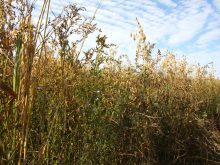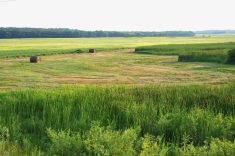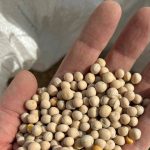Europe’s energy chief announced seven green certification schemes for biofuels last month and promised to tackle the unwanted side-effects of turning food into fuel.
Guenther Oettinger said biofuels’ indirect impacts were dangerous for the planet’s carbon balance and food supply.
“It is a real concern … particularly in the big producing countries, Southeast Asia and in South America,” said Oettinger. “This is an evolution which we cannot accept.”
The European Union agreed three years ago to get 10 per cent of its road fuels from biofuels – at a time when such fuels were widely regarded as good for the environment. But since then controversy has raged in Europe over the target.
Read Also

Manitoba crop insurance expands wildlife coverage, offers pilot programs
New crop insurance coverage is available to Manitoba farmers.
This first step towards limiting biofuels’ impact on the environment is a green standard to prevent companies from clearing forest, peatlands or grassland to grow biofuels for the European market.
The European biofuel market is expected to grow to about $17 billion a year and is being eyed by European farmers as well as growers of sugar cane in Brazil and palm oil in Southeast Asia. Oettinger named seven certification schemes, including Bonsucro and Greenenergy for Brazilian sugar cane, and the Round Table on Responsible Soy Association.
“EU recognition is a big milestone for the social and environmental sustainability of sugar cane biofuels imported into Europe,” said Bonsucro chairman Kevin Ogorzalek.
“Sugar cane ethanol is a clean and renewable fuel that reduces greenhouse gas emissions by more than 70 per cent according to the EU legislation.”
DEFORESTATION
But environmentalists were unimpressed, complaining they had not been given the chance to have input into proposed changes. Critics say the EU’s biofuel target creates an incentive for farmers to hack directly into forests to create space to grow fuel crops – known as direct land use change.
But they also charge that even biofuel crops planted in Europe can send shock waves through global food markets and indirectly promote deforestation – indirect land use change.
Recent research shows that when more food is needed, the majority of new farmland, possibly as much as 80 per cent, comes from burning down forests.
Research commissioned by Oettinger shows the biggest indirect impact comes from biodiesel from European rapeseed, Asian palm oil and South American soybeans.
















